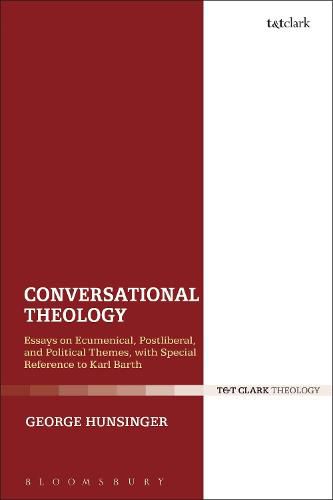Readings Newsletter
Become a Readings Member to make your shopping experience even easier.
Sign in or sign up for free!
You’re not far away from qualifying for FREE standard shipping within Australia
You’ve qualified for FREE standard shipping within Australia
The cart is loading…






The essays in this wide-ranging collection fall into three main sections: Ecumenical Theology, Postliberal Theology, and Political Theology. The first section deals with Torrance and Barth on the Sacraments. Hunsinger includes here an examination of Torrance’s views of baptism and the eucharist, as well as Karl Barth’s voice on the Lord’s Supper. He also develops a post-Barthian appreciation of Jews and Judaism. In the second section Hunsinger discusses such figures as Hans W. Frei, Ernst Troeltsch and H.R. Niebuhr in terms of their contribution to Postliberal Theology. The final section offers a discussion of Political Theology, as part of which Hunsinger presents an in-depth analysis regarding the political views of Karl Barth, as well as Barth’s understanding of human rights. The book ends with a meditation on Andre Trocme and how goodness happened at Le Chambon.
$9.00 standard shipping within Australia
FREE standard shipping within Australia for orders over $100.00
Express & International shipping calculated at checkout
The essays in this wide-ranging collection fall into three main sections: Ecumenical Theology, Postliberal Theology, and Political Theology. The first section deals with Torrance and Barth on the Sacraments. Hunsinger includes here an examination of Torrance’s views of baptism and the eucharist, as well as Karl Barth’s voice on the Lord’s Supper. He also develops a post-Barthian appreciation of Jews and Judaism. In the second section Hunsinger discusses such figures as Hans W. Frei, Ernst Troeltsch and H.R. Niebuhr in terms of their contribution to Postliberal Theology. The final section offers a discussion of Political Theology, as part of which Hunsinger presents an in-depth analysis regarding the political views of Karl Barth, as well as Barth’s understanding of human rights. The book ends with a meditation on Andre Trocme and how goodness happened at Le Chambon.